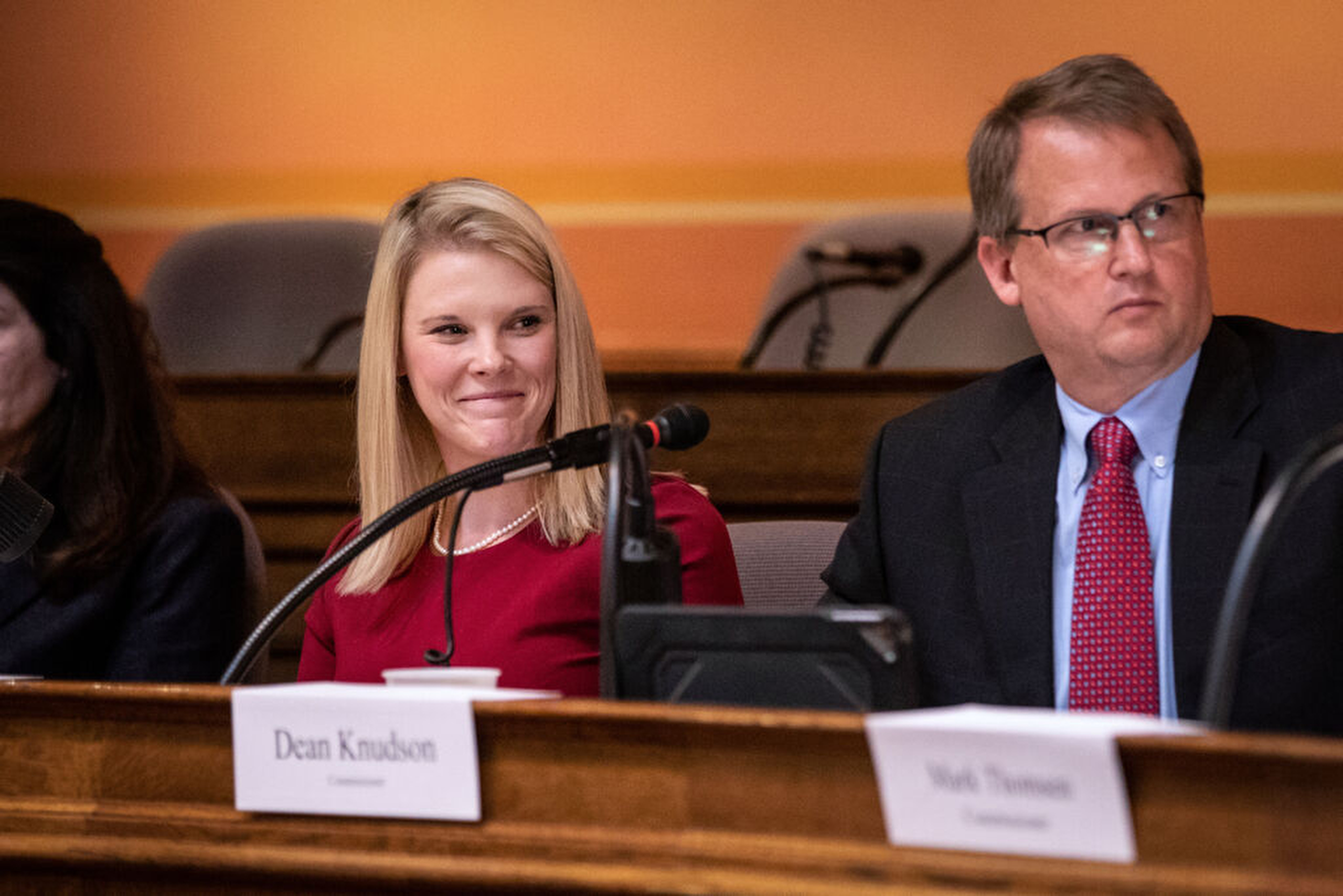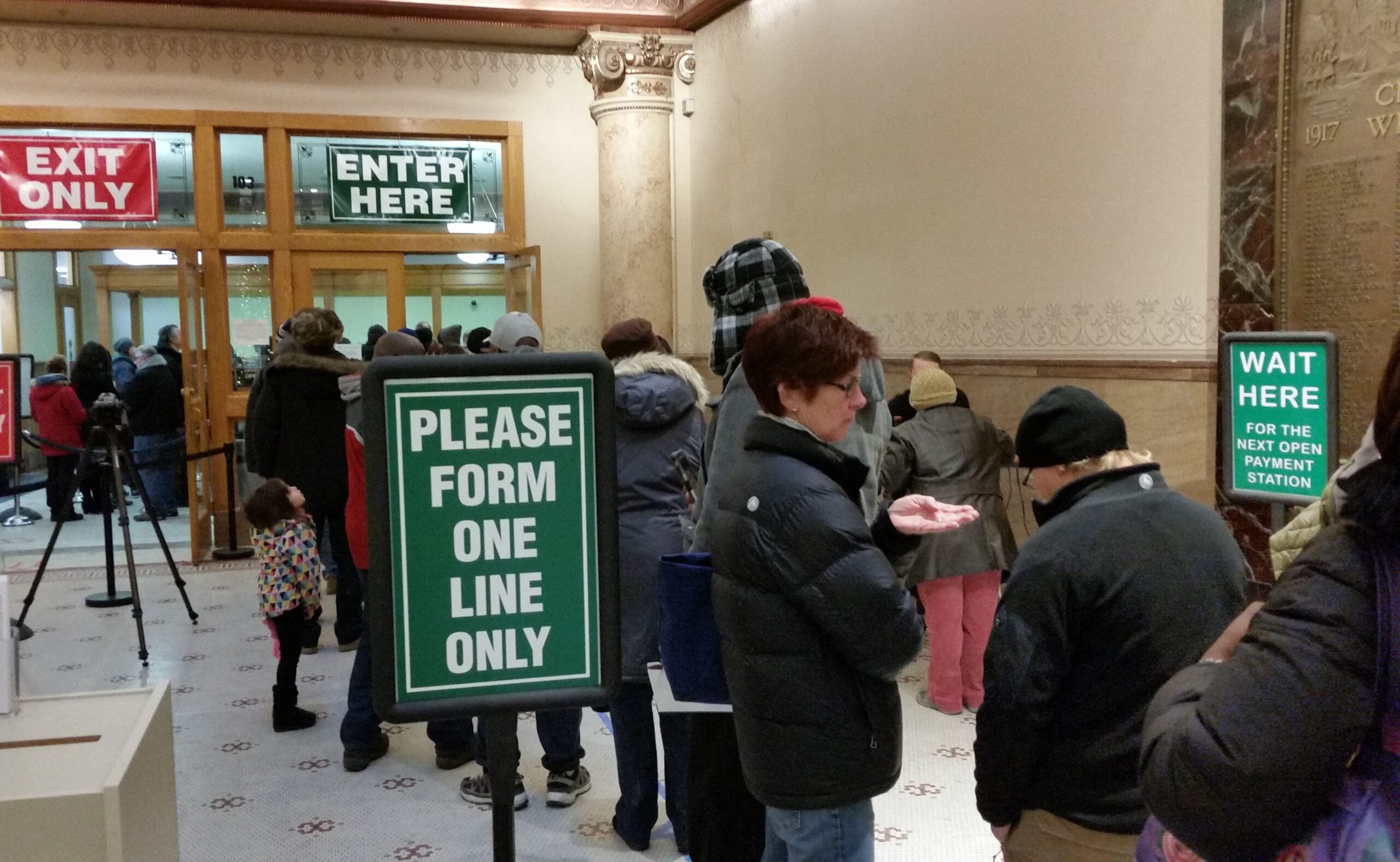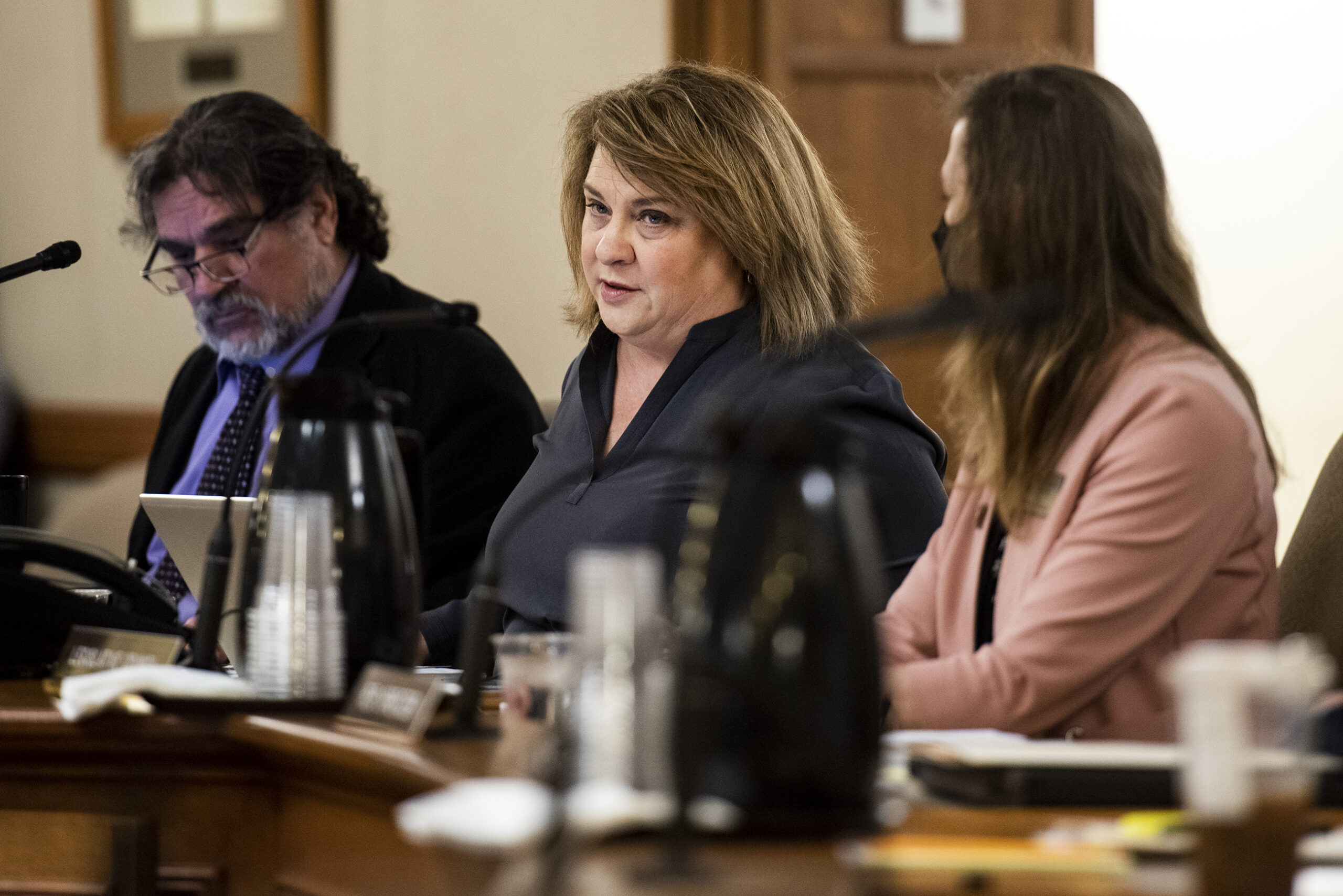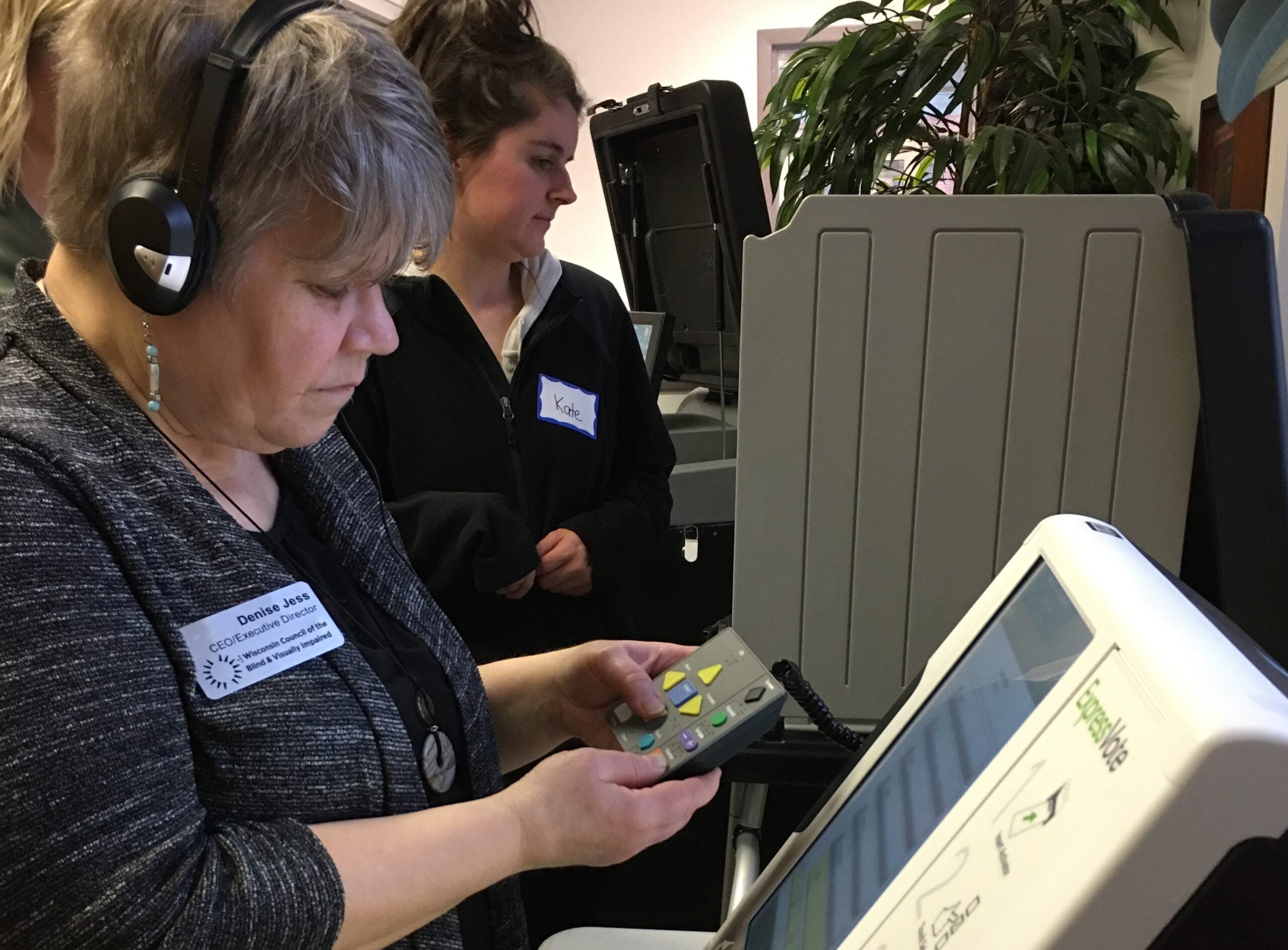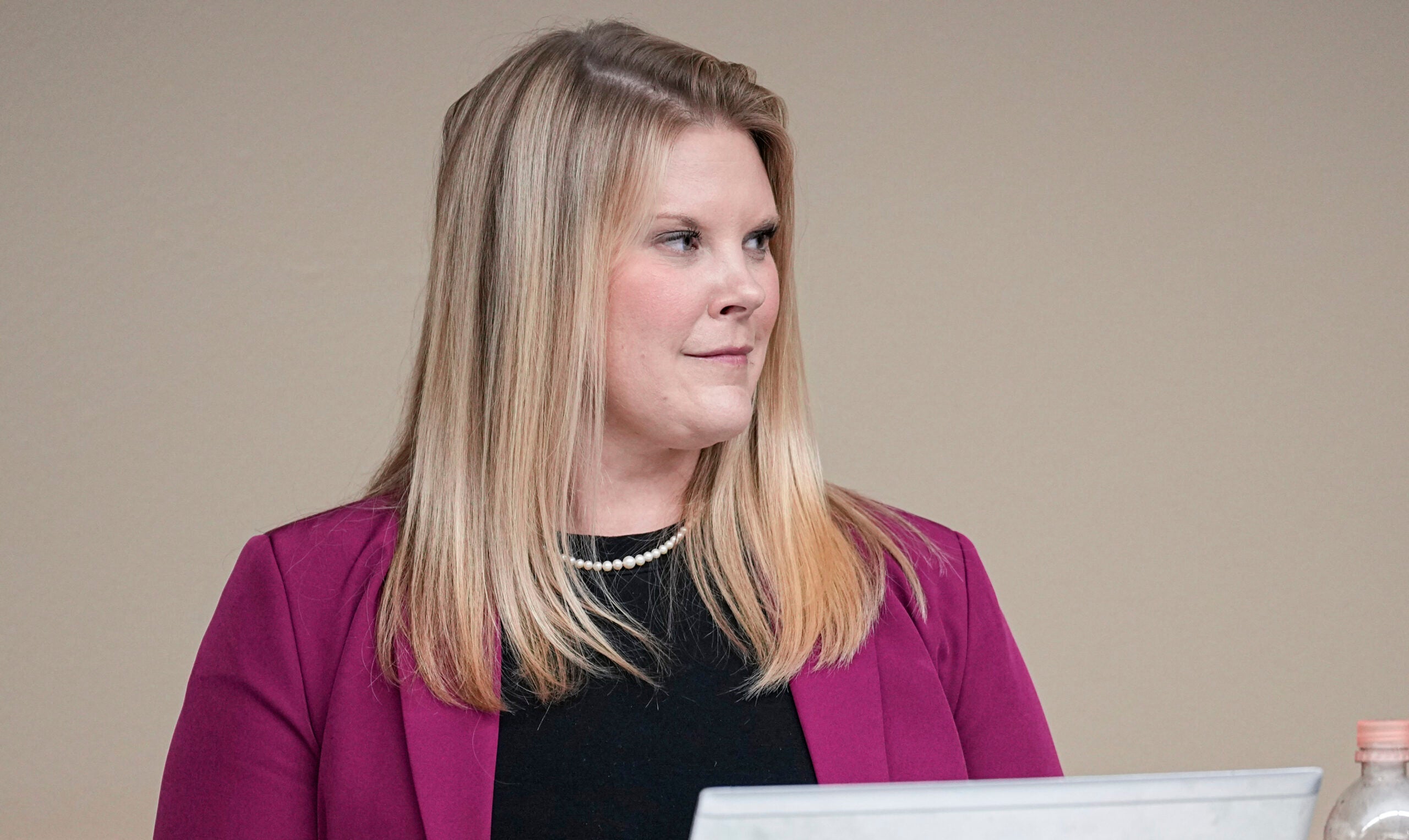The Wisconsin Elections Commission is poised to vote Tuesday on whether to reappoint the state’s top elections administrator, after months of open questions about how that role will be filled going into the 2024 presidential race.
The four-year term of Meagan Wolfe expires on July 1. Her work has come under constant scrutiny since the 2020 presidential election, with some Republican lawmakers saying they will not support her getting a second term.
If the Commission votes on Wolfe’s reappointment on Tuesday, they would then send that appointment to the state Senate, where Republicans hold a lopsided majority. It’s not clear if Wolfe has enough support in that chamber to win confirmation to a second four-year term. If Senators vote against confirming Wolfe, they would effectively fire her.
News with a little more humanity
WPR’s “Wisconsin Today” newsletter keeps you connected to the state you love without feeling overwhelmed. No paywall. No agenda. No corporate filter.
The Commission could also decline to take a vote, which could open up an unprecedented legal question about how to fill vacant roles. A Wisconsin Supreme Court ruling last year involving an appointee who declined to leave his position may have opened the door to Wolfe remaining in the administrator’s job, even after the expiration of her term.
In a June letter to Wisconsin’s nearly 2,000 municipal and county clerks who run elections at the local level, Wolfe said that her “role here is at risk” because “enough legislators have fallen prey to false information about my work.”
Ongoing uncertainty about who is in charge of interpreting and communicating elections policy could undermine a smooth elections process, said Barry Burden, a professor of political science and director of the Elections Research Center at the University of Wisconsin-Madison.
“The most important issue here is that there needs to be a trusted person in that role, well before we get to November 2024,” Burden said. “It’s really essential to have a trusted administrator in place through that entire election season. So if there is uncertainty or turmoil or a vacancy, I think it’s a real concern for Wisconsin elections throughout next year.”
A complicated process could leave the elections administrator role in ‘limbo’
Wolfe would need four of the Election Commission’s six members to vote in support of her reappointment on Tuesday. The recommendation would then be sent to the state Senate within seven days.
In her June letter, Wolfe called for the Legislature to quickly confirm whoever is selected for the role. But she also wrote that she was uniquely qualified.
“While I would ultimately support the Commission’s decision to go in the direction of appointing someone new, there is no substitute for my decade-plus of experience in helping run Wisconsin elections at the state level,” Wolfe said. “It is a fact that if I am not selected for this role, Wisconsin would have a less experienced administrator at the helm.”
While Wolfe was unanimously confirmed by the state Senate in 2019, Republican lawmakers and some Milwaukee Democrats have said that they will not support her. Senate Majority Leader Devin LeMahieu, R-Oostburg, has said that he does not think Wolfe could get the required 17 votes in the Senate for confirmation.
Reporting by the Milwaukee Journal Sentinel found that at least three Republican senators and one Democratic senator would vote against her reappointment if it reaches their chambers.
Alternatively, the shadow of a 2022 state Supreme Court ruling could come into play.
Last year, the high court found that Frederick Prehn, a Natural Resources Board chair and appointee of former Republican Gov. Scott Walker, could remain in place after the expiration of his term as long as the Senate did not hold a hearing on Gov. Tony Evers’ nominated replacement.
The precedent from that case has not been applied to the elections body before, but legal experts say it could let Wolfe remain in her position in the absence of a formal vote.
“She could probably remain in that role until a new person was nominated and confirmed,” said Burden. “So we may be in limbo, whether she’s in the role or not in the role.”
The decision could also be kicked over to the Republican-controlled Joint Committee on Legislative Organization, which has the right to appoint an interim leader if a position remains vacant for more than 45 days.
That would be contingent on an interpretation of the court’s verdict on Prehn, and what constitutes a vacancy.
“Regardless of what happens, someone’s going to be unhappy and try to take this case to court,” Burden argued.
Wolfe faced relentless scrutiny after the 2020 election
Wolfe has been a target of conspiracy theories and criticism from some Republicans since the dramatic 2020 presidential election cycle. Numerous reviews of the election, including a nonpartisan audit, found no evidence of widespread fraud.
Nevertheless, that cycle gave rise to waves of criticism and attacks. Wisconsin’s 2020 presidential primary was significantly affected by the early days of the COVID-19 pandemic, when shuttered polling places led to hours-long lines in Milwaukee, and elections officials were forced to answer questions about how ballots could be safely and securely cast during a public health emergency.
Wolfe became a target for GOP criticism that followed the November 2020 general election, when former President Donald Trump refused to concede the race and made false claims of fraud in battleground states. In Wisconsin, Assembly Republicans voted for an investigation that cost the state millions. Its final report was filled with criticism of the Elections Commission.
Burden said that scapegoating fundamentally misunderstands Wolfe’s role. The nonpartisan administrator implements policy, he said, but does not craft it. Those decisions are made by the elections commission itself, a six-person body run by three Republican appointees and three Democrats.
“The commission has operated mostly on a bipartisan basis before 2020 – and even in early 2020, allowing things like drop boxes. That was done on a bipartisan basis,” Burden said. “But it was really starting with the November (2020) election when things began to turn.”
Wolfe herself noted these misinterpretations of her job in a six-page fact-checking memo that she circulated to members of the elections commission in advance of the meeting.
“When people perpetuate false claims about our election systems, push back publicly,” she wrote. “Election officials cannot carry the burden of educating the public on elections alone, we need the assistance of people in power, like yourselves, to help us show how Wisconsin elections administration is strong, fair, and accurate.”
Wisconsin Public Radio, © Copyright 2025, Board of Regents of the University of Wisconsin System and Wisconsin Educational Communications Board.

